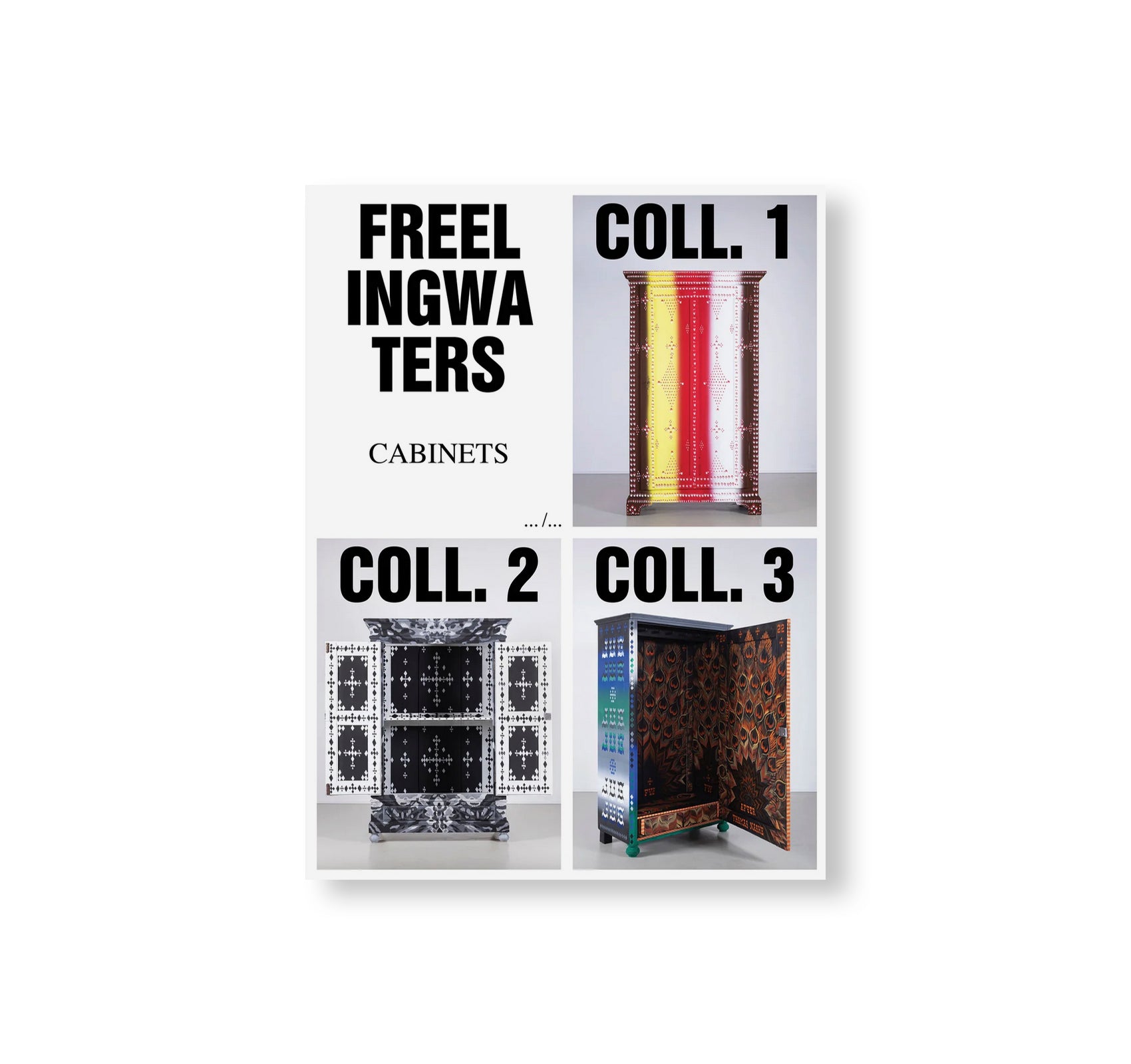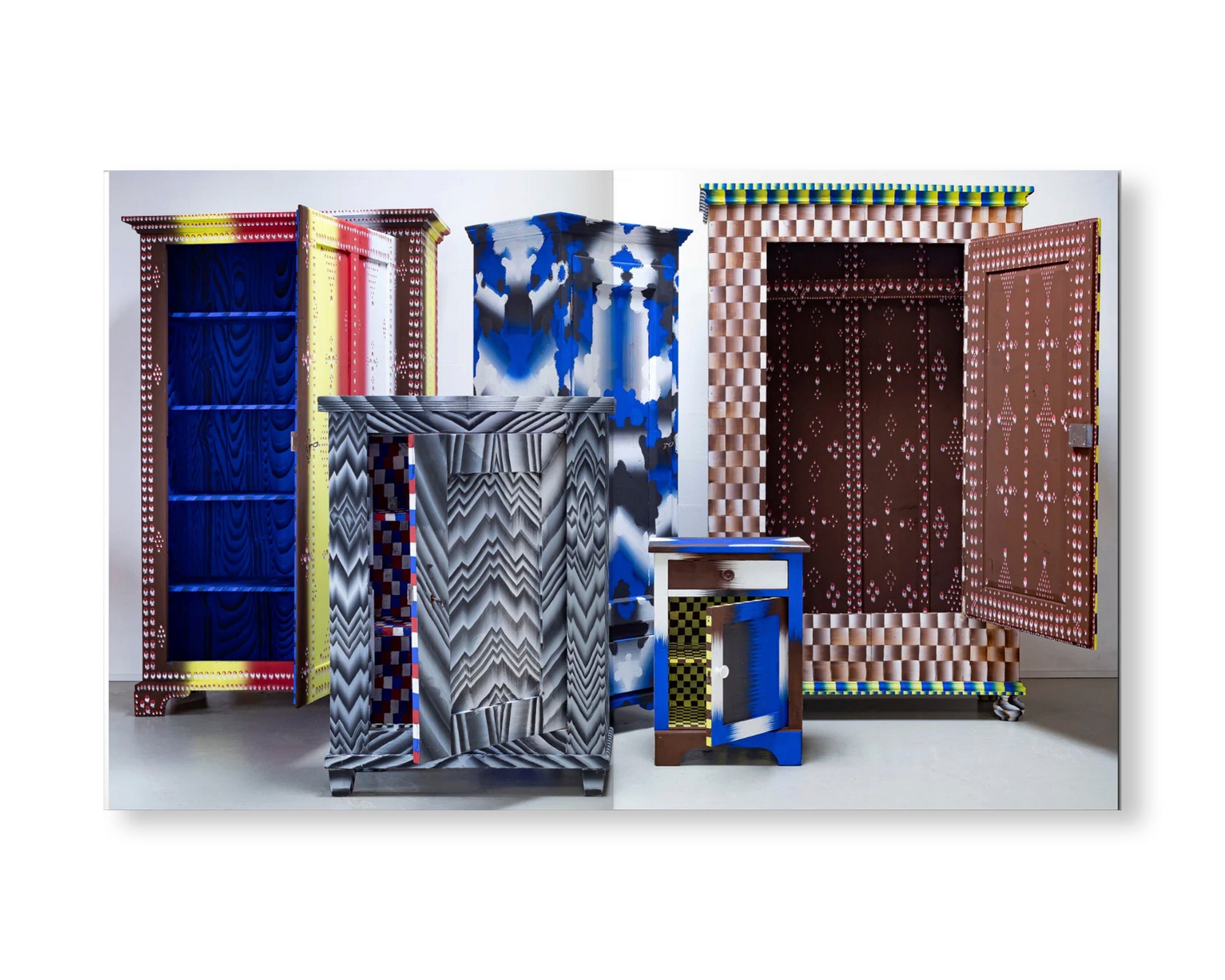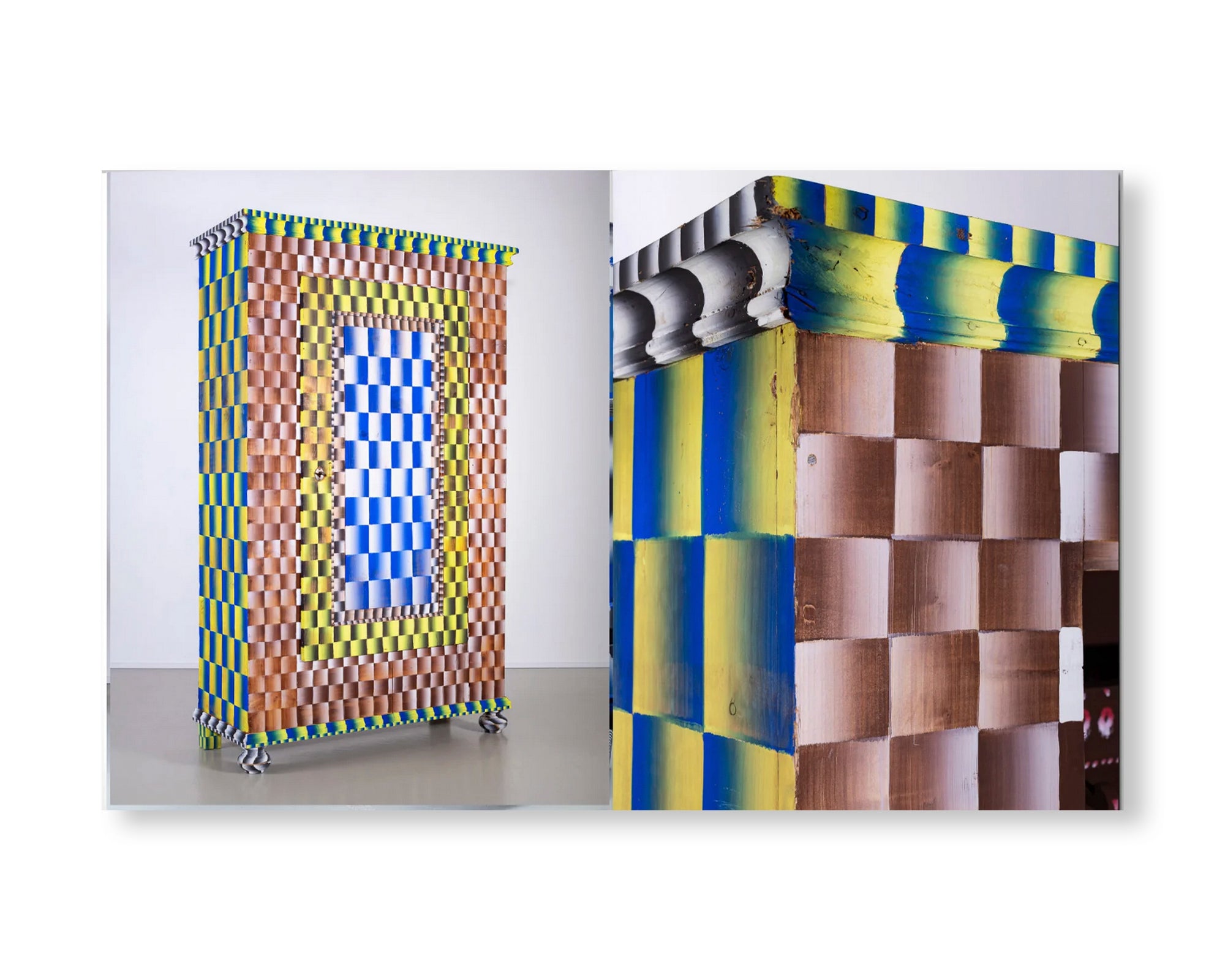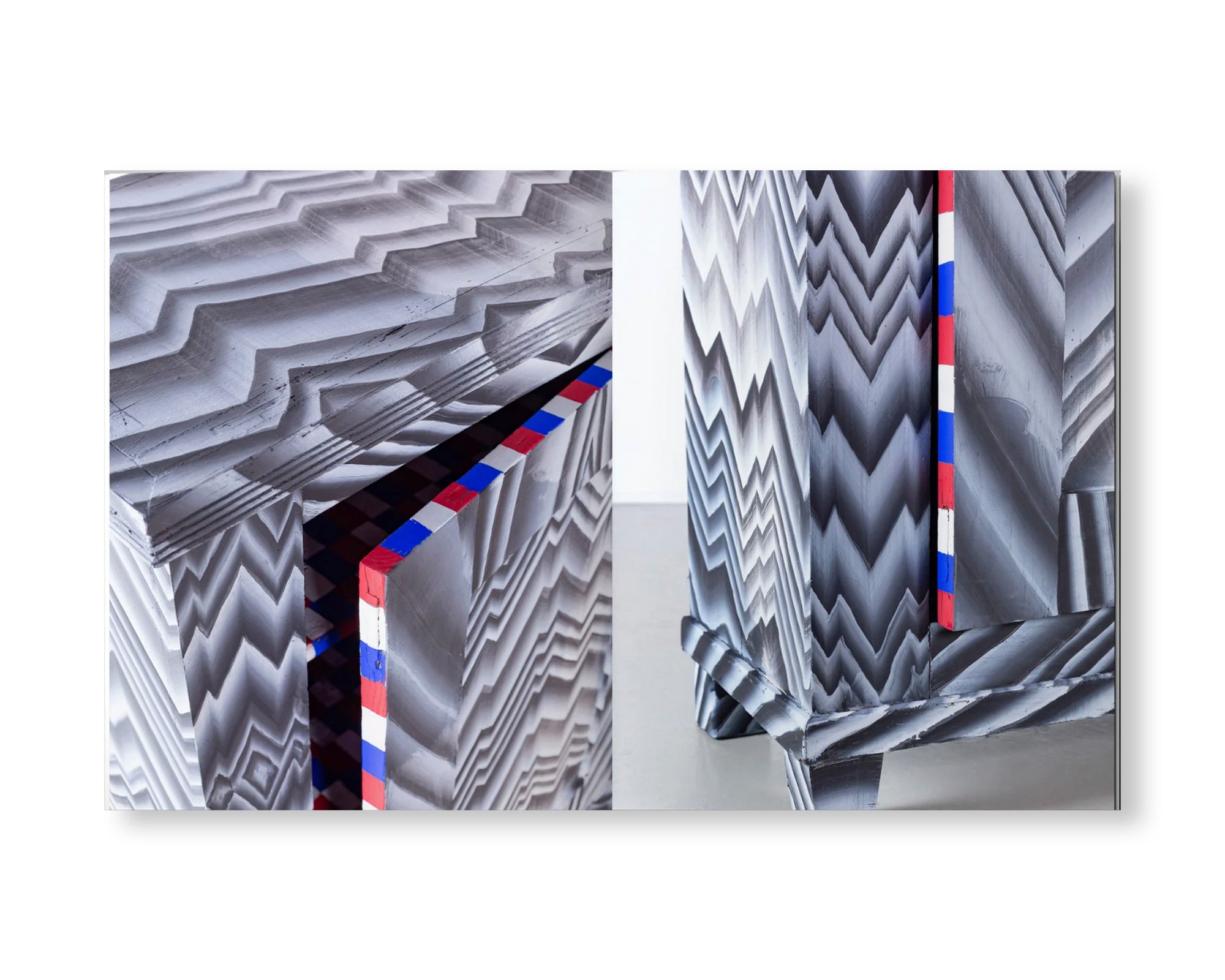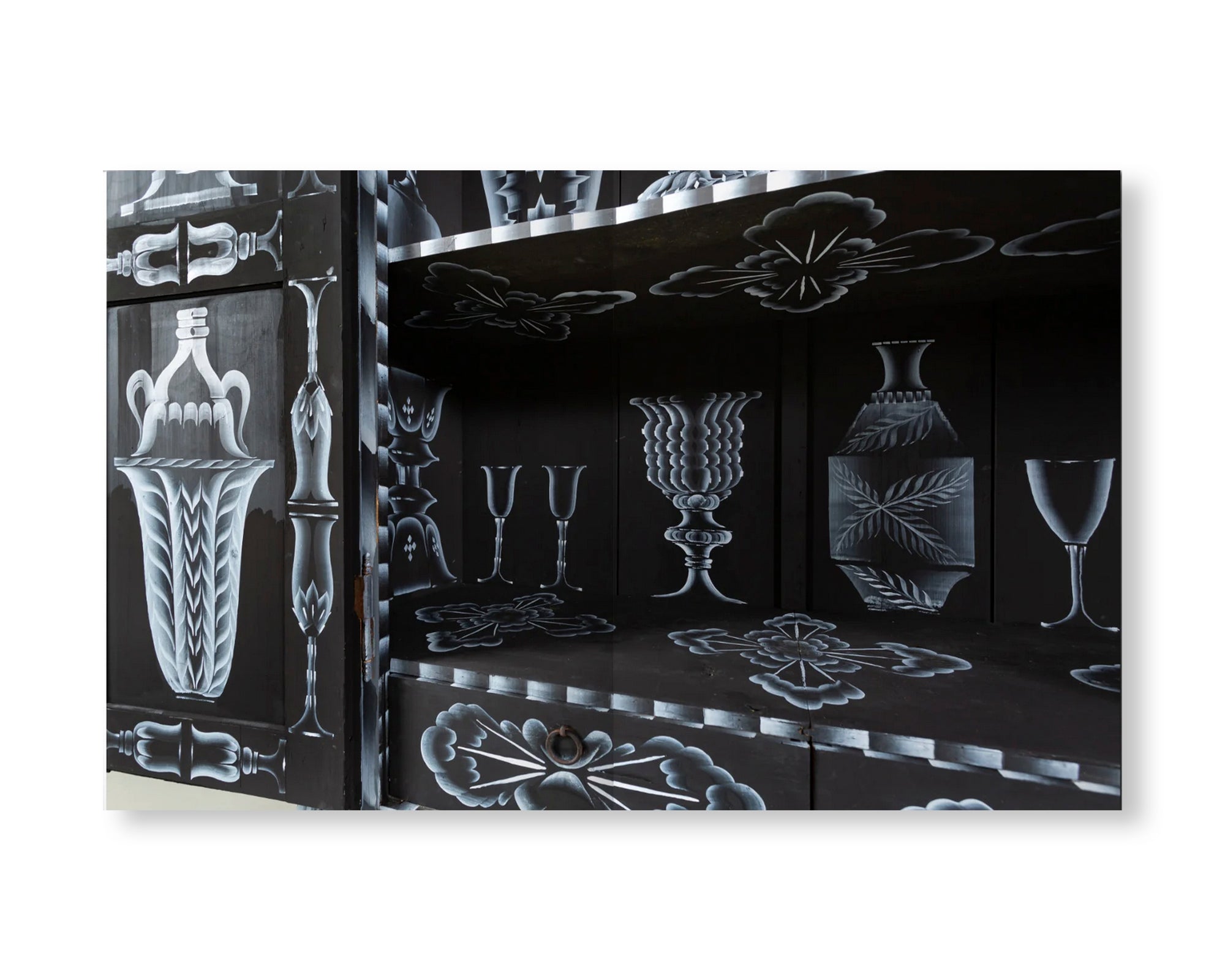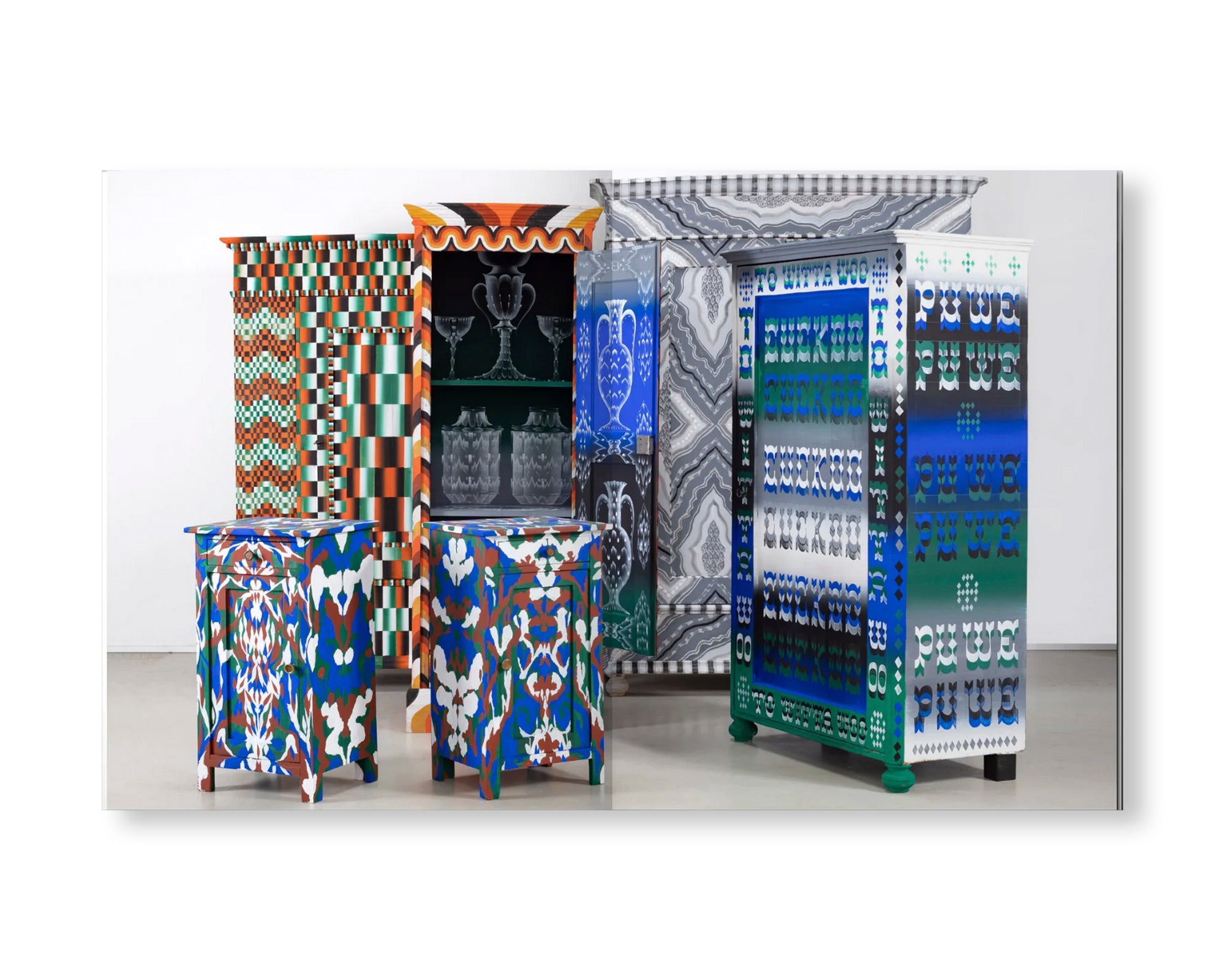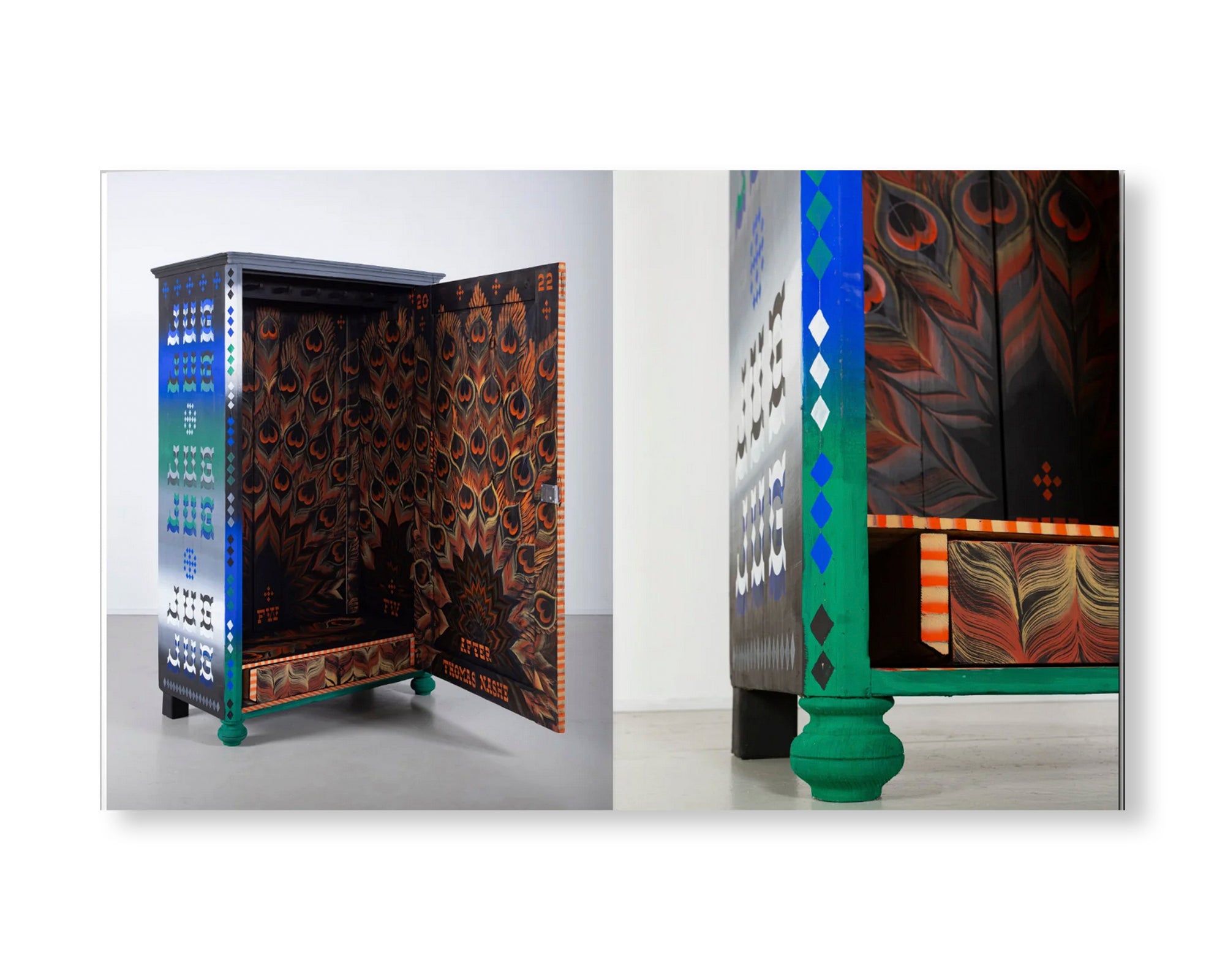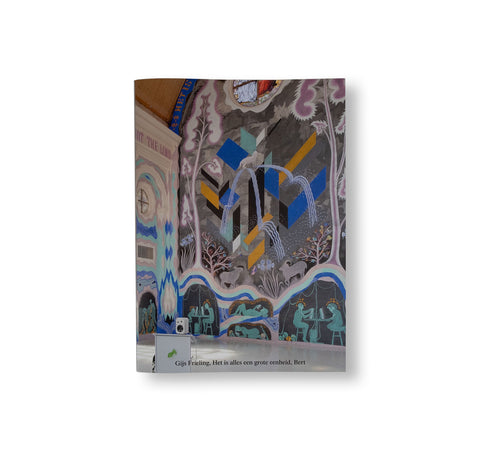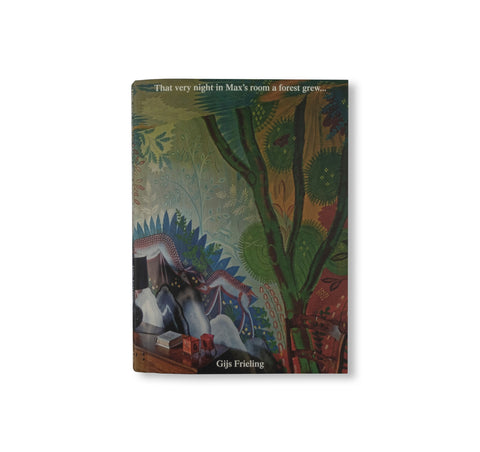CABINETS by FreelingWaters
オランダ人アーティスト、ハイス・フリーリング(Gijs Frieling)とオランダを拠点に活動するタイポグラフィー・デザイナーであるジョブ・ウーテルス(Job Wouters)によるアーティストデュオ、「フリーリング・ウォーターズ(FreelingWaters)」の作品集。
何年にもわたって実験的な制作を続けられるくらい、大規模で豊饒なアイデアに巡り会えたら、どれほど心を満たすことだろうか。この二人は、幸運にもそこに辿り着くことができた。壁や建物から看板、本、衣服、棺に至るまで、さまざまなものにイメージを施してきた。本書に収録されているこの新たなプロジェクトでは、アンティークのキャビネットに着目した作品を手がけている。キャビネットは、掻き立てられた想像力を存分に注ぎ込むことのできる、柔軟な器だと二人は考える。しかし、好奇心を満たすというよりは、キャビネットは好奇心そのものなのである。
18世紀の民芸品やルネサンス以前の壁画から着想を得たフリーリングと、タイポグラフィとカリグラフィのスペシャリストであるウーテルスは、塗装が施された北欧のパイン材キャビネットの歴史を土台にして、伝統的な装飾をサイケデリックなワンダーランドへと変貌させた。テレビの砂嵐やブラウン管のグリッチ・アート(画面のエラー)、マジック・アイ(3D)・イリュージョン、ロールシャッハ・テスト、さらにはフラクタル図形まで、繰り返しと揺らぎによって、入り組んだ絵柄はこのような現代的な文脈を思わせ、遊び心溢れる視覚的なノイズとなる。
二人が伝統的な塗装済みキャビネットを研究していたとき、例えば大理石のような模様が、何年もかけて後継の職人たちによって複製され続けるうちに、最終的にはオリジナルの面影をすっかり失ったまま現在に至っているという現象に遭遇した。この回帰的な伝言ゲームは、「フリーリング・ウォーターズ」の作品全般を的確に表現していると言えよう。しかしその歪みは蓄積されて生まれたものではなく、意図的なものである。絵画とコンセプチュアルな好奇心を具現化する実践を通じ、幾度となく原点なるものは再考され、再構築され、異質でありながらもまだかろうじて認識できるものとして真逆の端からまた現れてくる。
この作品がギャラリーやレストラン、オフィスに飾られていてもさぞ美しいだろう。しかし、個人が時間をかけてこのオブジェとどのような関係を築くのか、そちらの方に心惹かれる。鮮やかな色彩、サイケデリックな模様、非現実的なこのイメージを、子供はどのように体験するのだろうか。どのようにして床に横たわり、板じきりに指先を伸ばして触ろうとしたり、兄弟から隠れて中に入ってしまうのだろうか。(『ナルニア国物語(The Chronicles of Narnia)』の中で、ペベンシー家の子供たちがナルニア国を見つけたのは、結局のところ、衣装だんすの中であった)。まず形として、このキャビネットは謎と不思議で満ちている。 二人はこのキャビネットの中に、次元と次元の狭間、装飾と具象の境界線、公と私の境目、過去と未来との間のような、何かと何かの間に存在する過渡的な場所を、自分たちの野心を収めるために見出したのである。このようなあり得ない場所に住みたい人はいないであろう?
本作は、今も進行形で展開されているプロジェクトであり、 「Collection 1」はロンドンの「The Wrong Shop」、 「Collection 2」はロッテルダムの「ボイマンス・ファン・ベーニンゲン美術館(Boijmans van Beuningen)」、「Collection 3」はニューヨークの「The Future Perfect」に収蔵されている。
How satisfying it must be to arrive upon an idea that is large and rich enough to sustain years of experimentation. Painter Gijs Frieling and typographer Job Wouters have been lucky enough to find one. Known collectively as FreelingWaters, they have applied their imagery to a variety of surfaces, from walls and buildings to billboards, books, clothing, and even coffins. For their new project they have turned to antique cabinets, which they see as all- accommodating vessels just begging to be invested by the imagination. But instead of cabinets filled with curiosities, FreelingWaters’s cabinets are themselves the curiosity.
Building upon a history of northern European painted-pine cabinets, Frieling, whose imagery is inspired by 18th-century folk art and pre-Renaissance wall painting, and Wouters, a specialist in typography and calligraphy, turn traditional ornamentation into a psychedelic wonderland. Through repetition and vibration, intricate patterns become joyful optical noise that suggests contemporary reference points: television static and cathode-ray tube glitch art, magic eye illusions, Rorschach tests, and even fractals. When researching traditional painted cabinets, the artists came across a phenomenon whereby some patterns (such as marble) were copied by successive artisans over the years to the point where, eventually, they lost all semblance of the original. This recursive game of telephone could be an apt description of FreelingWaters’s work in general, though their distortion is intentional instead of accretional — reference points reimagined and reworked over and over through the embodied practice of painting and conceptual curiosity, coming out the other end as something alien yet still recognizable.
Beautiful as these pieces are in galleries, restaurants, and offices, I’m drawn to how an individual might develop a relationship with such an object over time. How a child might experience the vivid colors, psychedelic patterns, and surreal imagery. How they would lie on the floor and reach up to rub the wood with their hand, or hide from their siblings inside them. (It was through a wardrobe, after all, that the Pevensie children found the land of Narnia.) As forms, these cabinets are filled with wonder and mystery. In them, Frieling and Wouters have also found a liminal space to house their ambitions, somewhere between dimensions, between decoration and figuration, between public and private, between past and future. Who wouldn’t want to live with such impossible objects?
FreelingWaters cabinets is an ongoing project of hand painted antique pine furniture.
Collection 1 with The Wrong Shop in London.
Collection 2 with museum Boijmans van Beuningen in Rotterdam.
Collection 3 with The Future Perfect in New York.
